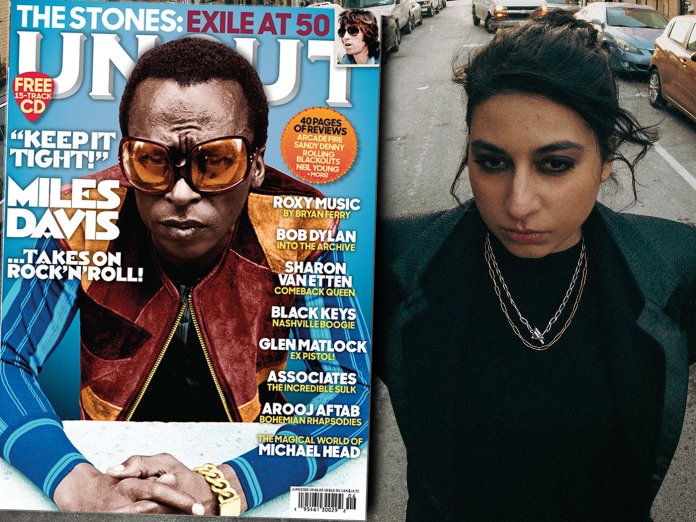We get a brief glance of Arooj Aftab’s home base – a light-filled room in a shared brownstone in Brooklyn’s Bed-Stuy, borrowed double bass propped against the wall – before she politely asks to switch the camera off. It’s still early, and the singer is feeling a little worse for wear follo...
We get a brief glance of Arooj Aftab’s home base – a light-filled room in a shared brownstone in Brooklyn’s Bed-Stuy, borrowed double bass propped against the wall – before she politely asks to switch the camera off. It’s still early, and the singer is feeling a little worse for wear following a heavy session at a local bar the previous evening. “It was a really warm day after five months of winter,” she pleads. “So we just lost our minds and went out and drank so much gin for absolutely no reason.”
As it turns out, this is not an uncommon occurrence for Aftab. “I’m the biggest hedonist,” she admits. “I love being social, I love talking to people, I love just being out and about. I’m inspired by the sheer energy of people saying crazy shit to each other. I think that solitude, for some people, helps them clear their mind and do incredible things. But for me, I prefer being in the middle of a big moving organism. Being in the centre of many energies is inspiring to me.”
This confession may come as a surprise to those who have recently found solace in Aftab’s fantastic 2021 album, Vulture Prince. A stunning and largely beatless affair that masterfully blends Sufi devotional music with smoky jazz and blues, ambient soundscapes and Buckley-esque acoustic flourishes, it transmits a sense of deep spiritual yearning and rarified, otherworldly calm. Reviews praised the album in awed, quasi-religious terms: it was “mesmerising”, “mystical”, “rhapsodic”. Suffice to say it is pretty much the exact opposite of the music you might expect to hear bubbling up from the hectic streets of Bed-Stuy, scene of Do The Right Thing and Biggie Smalls’ rap battles, a place where Aftab admits it’s tricky to record at home because of the constant blare of “airplanes and sirens and kids playing in the street”. Still, she wouldn’t have it any other way.
“I think calm doesn’t meet calm very well,” she says, considering the apparent disparity between her “reckless and rowdy” lifestyle and the serenity of her music. “And also I think it’s about not feeling that self-important about your work, like, ‘this is sacred music’. While my music pretends to be minimal, it’s not repetitive structures – it has a lot of dynamic energy. And that definitely can’t happen if I’m just hanging out by myself, you know?”



